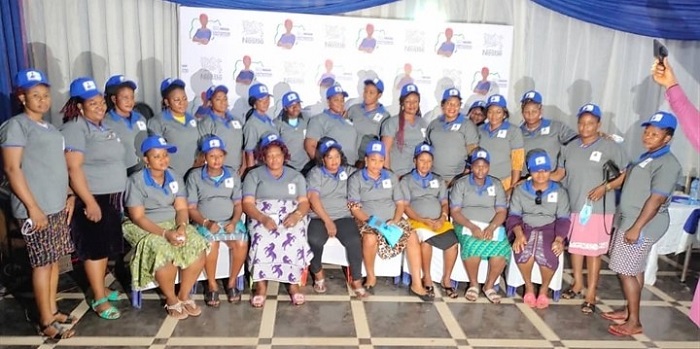In August 2021, Nestlé Nigeria launched “Nestlé Empowering Rural Women in Nigeria project” which aims to help rural women retailers within the company’s value chain scale up their businesses to increase their household incomes.

The programme was recently launched in Nsukka and Obolo-Afor, both in Enugu State, to reach an additional 50 women retailers. This brings the number of beneficiaries to 150.
“Nestlé Empowering Rural Women in Nigeria project” is designed to equip female distributors at the end of the pyramid to scale up to three times the size of their existing business over three months and to sustain the new level.
Speaking on Nestlé’s contributions to empowering women within her value chain, Mr. Khaled Ramadan, Commercial Manager for Nestlé Nigeria, said: “At Nestlé, we believe that by contributing to the health and wellbeing of our communities, we create shared value for all stakeholders while contributing to the growth of our business.
“’Nestlé Empowering Rural Women in Nigeria project’ is our way of improving the livelihoods of women in the rural areas by helping them scale their businesses to three times its current volume within three months. Our ambition is to empower 300 of these women who are retailers within our distribution channel.
“We have received very positive feedback from the first 100 beneficiaries of the programme who are based in the suburbs of Abuja and Osogbo. They are reporting faster turnover and increased revenue as well as stronger visibility of their business outlets within their locations. We are therefore confident that our intervention through training, mentorship and product grants are a right mix for success. By improving the household incomes of the rural women, Nestlé is helping to improve their access to adequate nutrition, good healthcare and good quality education for their families.”
The beneficiaries of “Nestlé Empowering Rural Women in Nigeria project” receive grants by way of Nestlé products valued at 300% of their current monthly sales. They also participate in training and mentorship programmes which equip them with the requisite skills to scale up and sustain their businesses.
These programmes are delivered by the implementation partner, FDConsults, which also works with each retailer over a three-month post training to help them succeed. Each beneficiary retailer is linked to a one-on-one mentor for guidance and consistent support.
Speaking on the outcome of the programme so far, Mr. Phranklin Audu, Lead Trainer & Head of Partnerships at FDConsults, said: “It is a delight for me to see the progress already made by the beneficiaries of ‘Nestlé Empowering Rural Women in Nigeria project’. The reports of increase in turnover and profit are very encouraging. Following the successful implementation of the first and second phases, I am happy that 50 more women are joining the programme today.
“FDConsults is privileged to be a part of this success story and remains focused on helping each beneficiary attain her highest potential. I encourage each participant here today to take full advantage of this unique opportunity to grow her business.”
Mrs. Peace Eze, a beneficiary from Obolo-Afor in Enugu State, said: “I am very happy to have been selected to benefit from this programme. I am going home with good news. With what we were taught today, I now have the knowledge to support my business to grow. With the help of the goods that Nestlé is also giving to us, I have everything I need to make my business succeed. I thank Nestlé for this important initiative, it will help all the women benefiting from the program a lot.”
The first phase of “Nestlé Empowering Rural Women in Nigeria project”, which was launched in the suburbs of the Federal Capital Territory in August 2021, reached 50 beneficiaries while the second phase launched in Osogbo in October 2021 added 50 more women to the programme. With this launch in Enugu State, the programme now includes 150 beneficiaries, halfway to the target the company set for the initiative.
“Nestlé Empowering Rural Women in Nigeria project” is one of the company’s Creating Shared Value (CSV) initiatives to contribute towards building thriving communities by improving livelihoods.
